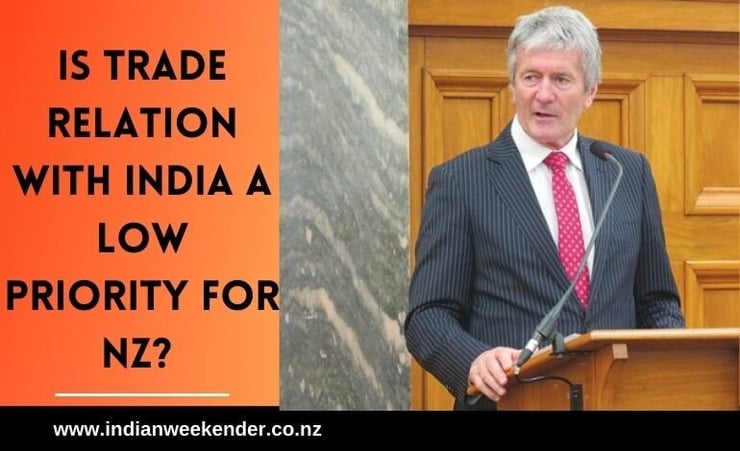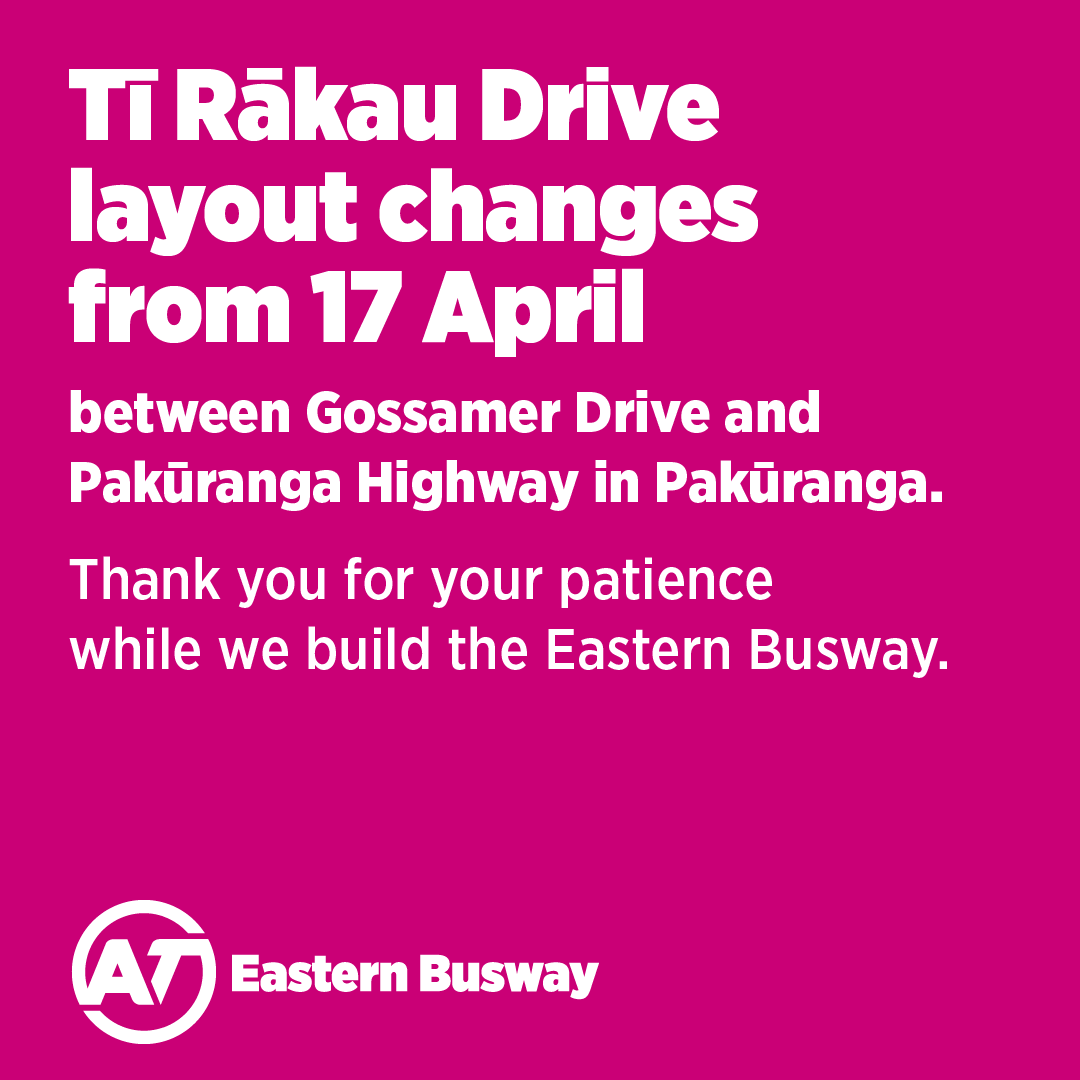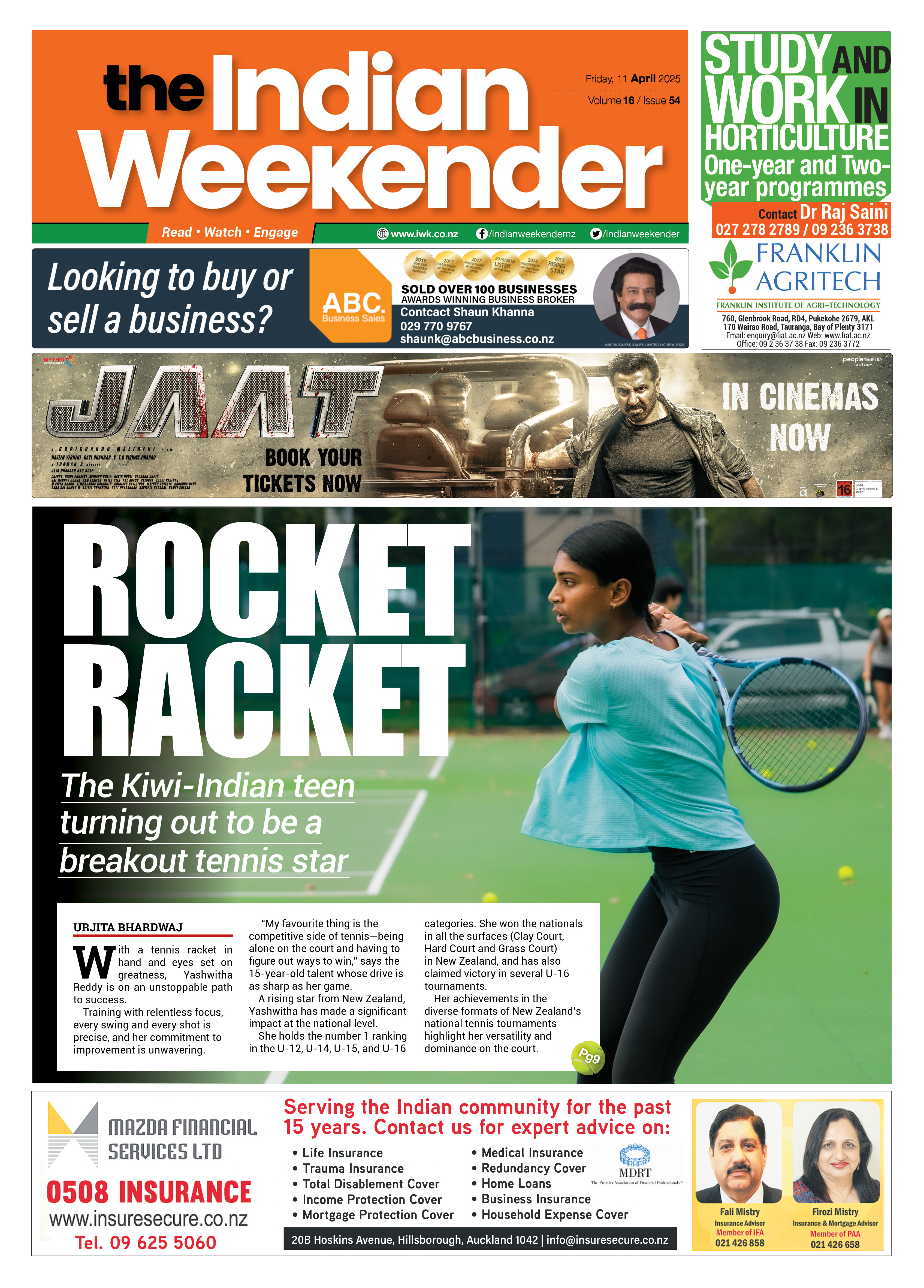Trade Minister’s speech on NZ’s trade priorities fails to mention India

The fact that India failed to find a single mention in the Trade Minister Damien O'Connor's speech on Wednesday, December 9, at Auckland Trade and Economic Policy School (ATEPS) organised by Ministry of Foreign Affairs, and Trade (MFAT) has once again confirmed a growing and worrying concern among some key stakeholders that India remains a low priority for this government.
The Minister was outlining NZ's trade policy and priorities at Auckland Trade and Economic Policy School (ATEPS), an event hosted by the University of Auckland's Public Policy Institute since 2019 with the support of MFAT.
The annual event brings together local and international experts to mull upon some of the most pressing questions related to the future trajectories of the general trade environment in the region and extended neighbourhood.
 (Left); Jay Changlani, Treasurer India New Zealand Buisness Council, (Right) Dr Rahul Sen, Senior Lecturer of Economics, Auckland University of Technology (AUT)
(Left); Jay Changlani, Treasurer India New Zealand Buisness Council, (Right) Dr Rahul Sen, Senior Lecturer of Economics, Auckland University of Technology (AUT)
NZ's trade strategy with India appears to be different than Australia
Contrary to this, NZ's transtasman neighbour Australia is marching ahead with a recalibrated approach on reviving and keeping talks on Free Trade Agreement with India afloat with a likelihood of signing of an early harvest trade agreement before the end of the year – an agreement that would grant Australian wines market access in India.
Notably, early harvest agreements are used to liberalise tariffs on the trade of certain goods between two countries or trading blocs before a comprehensive FTA is concluded.
Australian Prime Minister Scott Morrison's Special Trade Envoy (and a former Australian prime minister) Tony Abbot, had recently spoken with India's Commerce Minister Piyush Goyal and confirmed the development that an early harvest agreement was on the cards by the end of the year or early next year.
This was after Minister Goyal and Australia's Trade Minister Dan Teehan had in October officially launched negotiations for a free trade agreement (FTA) between the two countries, aimed at concluding an early harvest agreement by the end of 2021 and a Comprehensive Economic Cooperation Agreement by 2022.
Speaking about the impending conclusion of the FTA talks with India, Abott said, "Based on the discussions that I've had last night with minister Goyal and with senior members of his team, I am confident, (and) they are confident that we can do a very good early harvest deal which is larger rather than smaller by the end of the year, or at the very least, very early in the new year."
To this recalibrated approach of Australia in cracking an FTA with India, NZ seems to have completely lost appetite of working toward the elusive FTA with India, as evident in the absolute omission of India in the Trade Minister's speech as one of the key trade priorities in the near future.
It is important to recall that the trajectory of talks around a possible Free Trade Agreement with India for both NZ and Australia have been roughly the same with a similar time frame of initiation of talks (NZ in April 2010 and Australia in May 2011) and reaching a stalemate around similar time frame (NZ in February 2015 and Australia in September 2015).
Both transtasman neighbours have pinned their hopes of achieving the goal of the Free Trade Agreement with India through other ongoing multilateral regional negotiations, particularly the Regional Comprehensive Economic Partnership (RCEP).
Notably, India had chosen to walk away from the negotiations on RCEP in November 2019 to protect vulnerable sections of its economy as well as not getting desired reciprocal quid-pro market access in China; NZ seems to have permanently buried the idea and hope of re-engaging directly with India on a FTA between the two countries.
In fact NZ government, it seems, has allowed the Covid pandemic to play a dampener in both the political and bureaucratic bonhomie between the two countries, but even the bilateral trade figures have fallen, largely in services exports (as closed NZ borders have restricted travel and inward export revenue).
Australia on the other hand, completely un-deviated from the current Covid pandemic, have re-initiated negotiations with India for a possible FTA when in June 2020, as part of the Joint Statement on a Comprehensive Strategic Partnership between India and Australia, Prime Ministers Scott Morrison and Narendra Modi decided to re-engage on a bilateral Comprehensive Economic Cooperation Agreement (CECA).
Since then, trade negotiators from both sides have been trying to innovate and address each other’s concerns, such as Australia conceding favourably to India's growing concern of "enhancing mobility for its professionals" to win back market access to "Australian wines."
If reports are to be believed, an FTA between India and Australia could be on the horizon by early next year, whereas the NZ government seems to have forgotten India from its immediate or long-term trade and strategic priorities.
What do key stakeholders say about NZ's snub to trade relations with India?
Dr Rahul Sen, Senior lecturer of Economics at Auckland University of Technology and Fellow of the New Zealand India Research Institute (NZIRI) in Wellington said, "While it is understandable that NZ’s future trade policy priorities would focus on its current and prospective FTA partners that include EU and the UK, the complete non-mention of India is concerning, in my view from the perspective of NZ’s long term economic strategy of recovering from the pandemic."
Jay Changlani, Treasurer India New Zealand Business Council (INZBC) – the Auckland based trade body engaged in advancing bilateral trade relations between the two countries for the past three decades expressed concern that NZ might "miss the bus" if Australia marches ahead and inks an FTA with India early next year.
"It is time for New Zealand to step up and re-engage with India on negotiations around FTA," Changlani said.
NZ needs to learn from Australia on how to revive and move fast on talks of Free Trade Agreement with India




